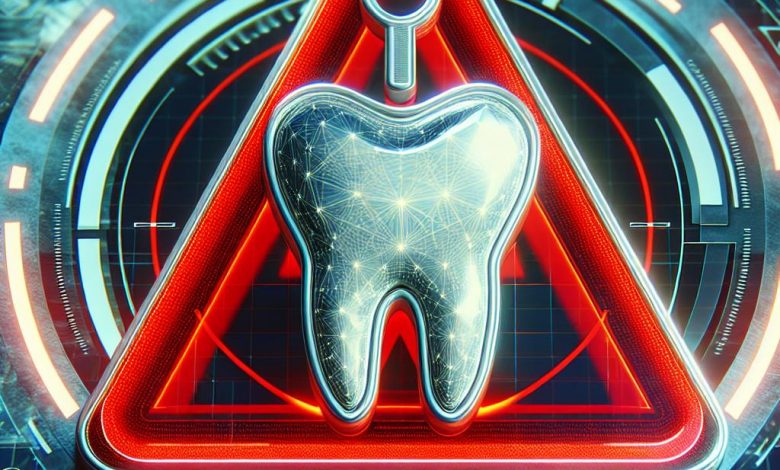
Table of Contents
Delta Dental Data Breach Overview
In one of the most significant cybersecurity incidents to affect the healthcare sector, over 6.9 million customers of Delta Dental were subjected to a data breach. This breach has caused widespread concern due to the sensitivity of the personal information that was compromised. The impacted data includes a range of personal details such as names and addresses, in addition to highly sensitive data such as Social Security numbers, financial details, and health information.
The origins of the breach can be traced to the exploitation of the MOVEit Transfer application by the group known as the Cl0p ransomware gang. This malign entity targeted the application, which is widely used for secure file transfers, and through this vector, they were able to access and potentially exfiltrate the sensitive data. The MOVEit application is designed to ensure that files are securely transferred and shared without interception, but in this instance, a weakness was exploited, resulting in the substantial data breach.
The presence of Social Security numbers and financial details in the compromised data set is particularly troubling, given that these pieces of information can be used for identity theft and financial fraud. Health information, on the other hand, is protected under the Health Insurance Portability and Accountability Act (HIPAA), and its exposure can have serious legal implications in addition to the privacy concerns it raises for affected individuals.
In response to the breach, Delta Dental has been working in cooperation with law enforcement and cybersecurity experts to assess the full extent of the breach and to strengthen their systems against future attacks. The incident has also served as a reminder of the continuous threats that organizations face in an ever-evolving cybersecurity landscape and the need for robust security measures to protect sensitive customer data.
Timeline and Investigation Findings
Delta Dental of California experienced a significant data breach that unfolded over several crucial days. The company first became aware of the cyber intrusion on June 1, 2023, when they were notified of a potential hack into their systems. Following this alert, an internal investigation quickly commenced to assess the situation.
The probe into the incident revealed that the unauthorized access took place in a narrow window between May 27 and May 30, 2023. This finding indicated that the attackers had a limited timeframe in which they were able to infiltrate the systems and extract sensitive information. Despite the brief period of exposure, the breach had a far-reaching impact, affecting millions of individuals.
As part of Delta Dental's response to the breach, there has been ongoing cooperation with law enforcement agencies. These agencies are actively involved in investigating the breach, with the aim of identifying the perpetrators and preventing further such incidents from occurring. The partnership between Delta Dental and law enforcement is crucial in the aftermath of such cyber-attacks, as it helps to strengthen security measures and brings to light the techniques used by hackers.
Delta Dental understood the importance of transparency in the wake of the data breach. Consequently, they took affirmative steps to notify affected individuals by sending out notification letters detailing the extent of the breach and the types of data that had been compromised. In addition to direct communication with customers, Delta Dental also posted a detailed incident notice on their website. This notice served to inform a broader audience about the breach and provided guidance on measures individuals could take to protect themselves from potential identity theft or fraud as a result of the breach.
The efforts made by Delta Dental in the wake of the breach highlight the importance of rapid response and open communication channels with both law enforcement and affected parties in managing the fallout of a cybersecurity incident. It also underscores the ongoing need for vigilance and enhanced security protocols to prevent similar breaches from occurring in the future.
Remediation and Customer Protection
In response to the data breach, Delta Dental implemented a series of steps aimed at containing the situation and preventing future vulnerabilities. Remediation measures were enacted to address the security flaw—specifically the zero-day SQL injection vulnerability in the MOVEit Transfer application, which had been leveraged by cybercriminals to execute their attack on the network.
In addition to deploying the necessary security patches to prevent further exploitation of the MOVEit vulnerability, Delta Dental also initiated a painstaking forensic analysis to understand the depth and scope of the breach. This way, they not only contained the immediate threat but also fortified their systems against similar future intrusions.
Recognizing the potential risks that millions of affected customers faced following the breach, Delta Dental took the proactive step of offering free identity monitoring services to those impacted. These services are designed to alert individuals of any unusual activity using their personal information, thereby enabling them to act rapidly in the event of identity theft or other fraud-related activities.
Delta Dental also emphasized the importance of vigilance on the part of its customers, encouraging them to closely monitor their accounts for any suspicious activity. They highlighted that while they are taking all possible steps to protect their customers, individuals should also be proactive in safeguarding their personal information in the aftermath of the breach. This involves not only staying alert to anomalies related to their financial and personal accounts but also being cautious of phishing attempts which often occur after such incidents.
The company's commitment to customer protection is apparent in these responsive actions. By swiftly offering support services to the impacted individuals, Delta Dental is ensuring that those affected by the data breach are not left to deal with the aftermath alone. Furthermore, their ongoing communication and guidance are important in fostering a collaborative effort between the company and its clientele to thwart potential exploitation of the breached data.
Broader Impact and Industry Reactions
The Delta Dental of California data breach forms part of a much wider security crisis stemming from the MOVEit data breach. This significant cyberattack affected over 2,680 organizations and nearly 91 million individuals worldwide, laying bare the extensive vulnerabilities present across a range of sectors and highlighting the interconnectedness of modern digital infrastructures.
Within the catalogue of MOVEit-related security incidents, the breach that impacted Delta Dental emerges as the third-largest in scale. This fact underscores the magnitude of the issue faced by Delta Dental, situating it among the most significant of the MOVEit exploitation cases. Prior incidents hitting government contractors and patient communications entities, like Maximus which affected at least 330,000 Medicare recipients, demonstrate the breadth and depth of the attack's impact.
The implications of such far-reaching breaches have resonated deeply within the healthcare industry and beyond. These events have led to an intensified discourse concerning the importance of robust cybersecurity defenses. Industry experts are calling for organizations to reevaluate and strengthen their cybersecurity postures to defend against similar threats in the future. These measures include a proactive approach to regularly updating and patching software, defining an effective patch deployment process, and, when critical vulnerabilities arise, having the capability to quickly respond and mitigate potential damages.
Moreover, the MOVEit data breach has also shone a spotlight on the responsibility that companies have in rigorously assessing the security provisions of their third-party vendors. Given the widespread reliance on third-party services and applications for key operations, the importance of due diligence in vendor selection and ongoing scrutiny cannot be overstated. Organizations are being implored to adopt a zero-trust and zero-knowledge cybersecurity architecture to limit accesses and actions within their networks, potentially preventing bad actors from gaining or expanding their reach.
The Delta Dental incident and the broader MOVEit hack have served as critical reminders of the lurking cyber risks and the need for constant vigilance. They act as a call to action for all organizations to assess their current cybersecurity strategies and reinforce their defenses against an ever-evolving threat landscape.




